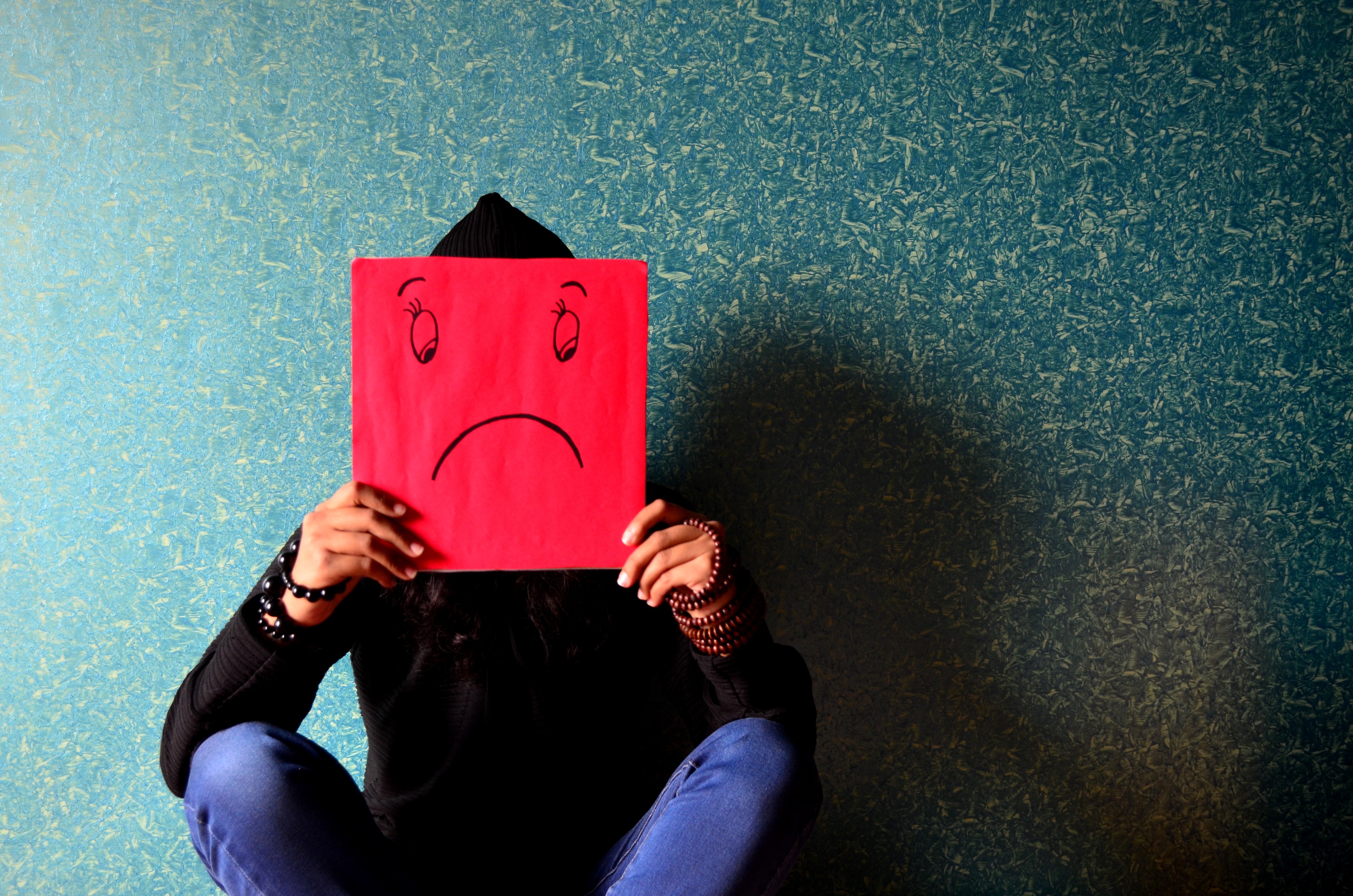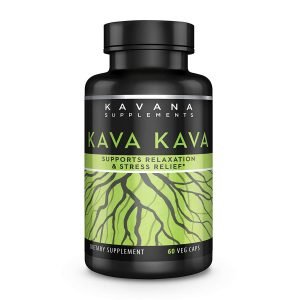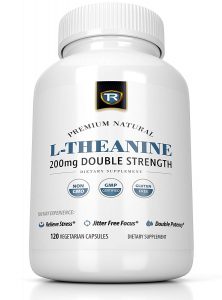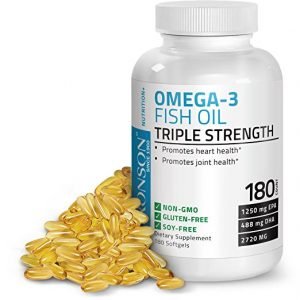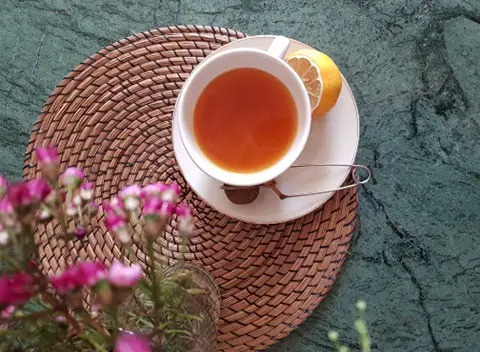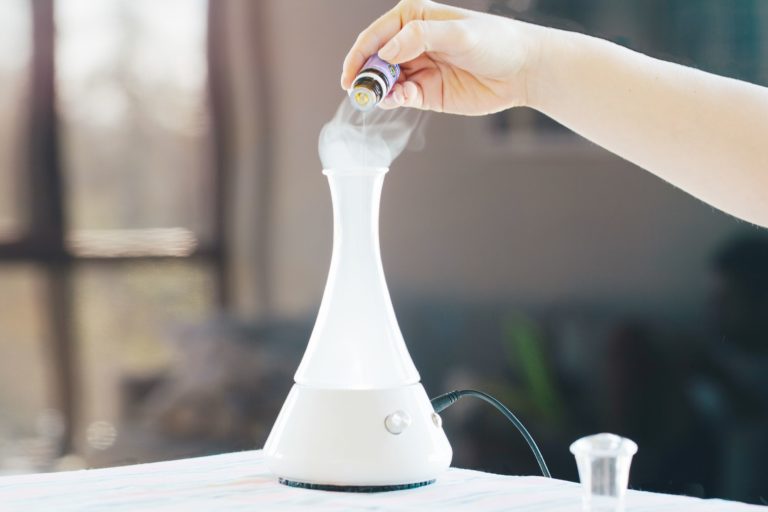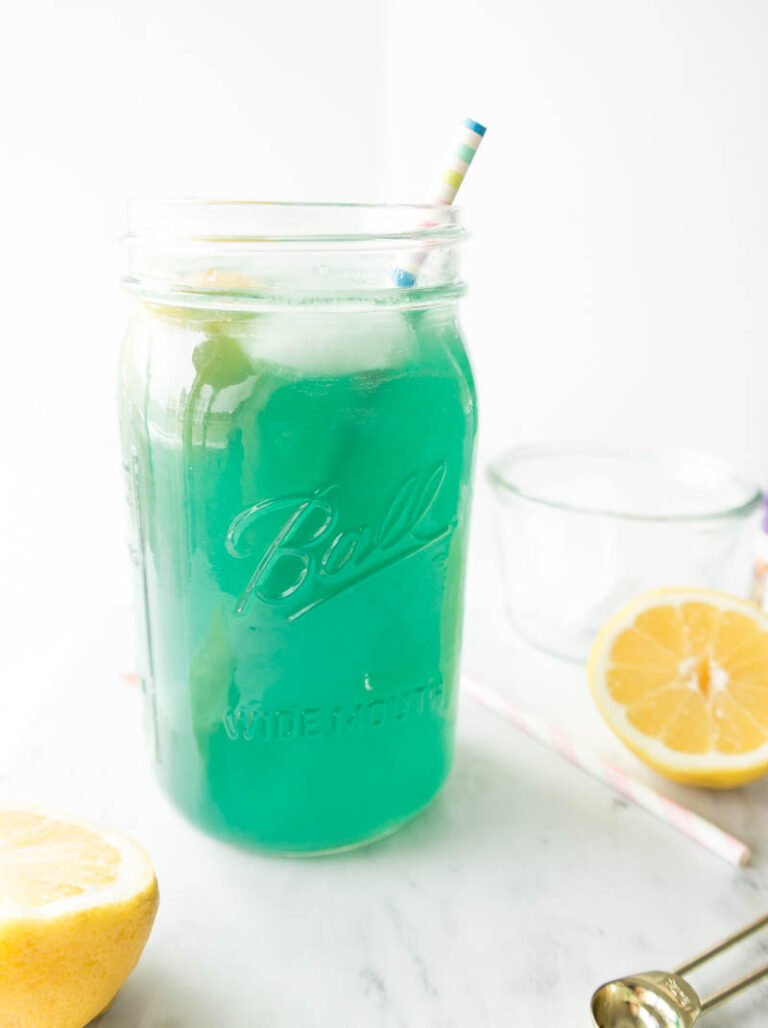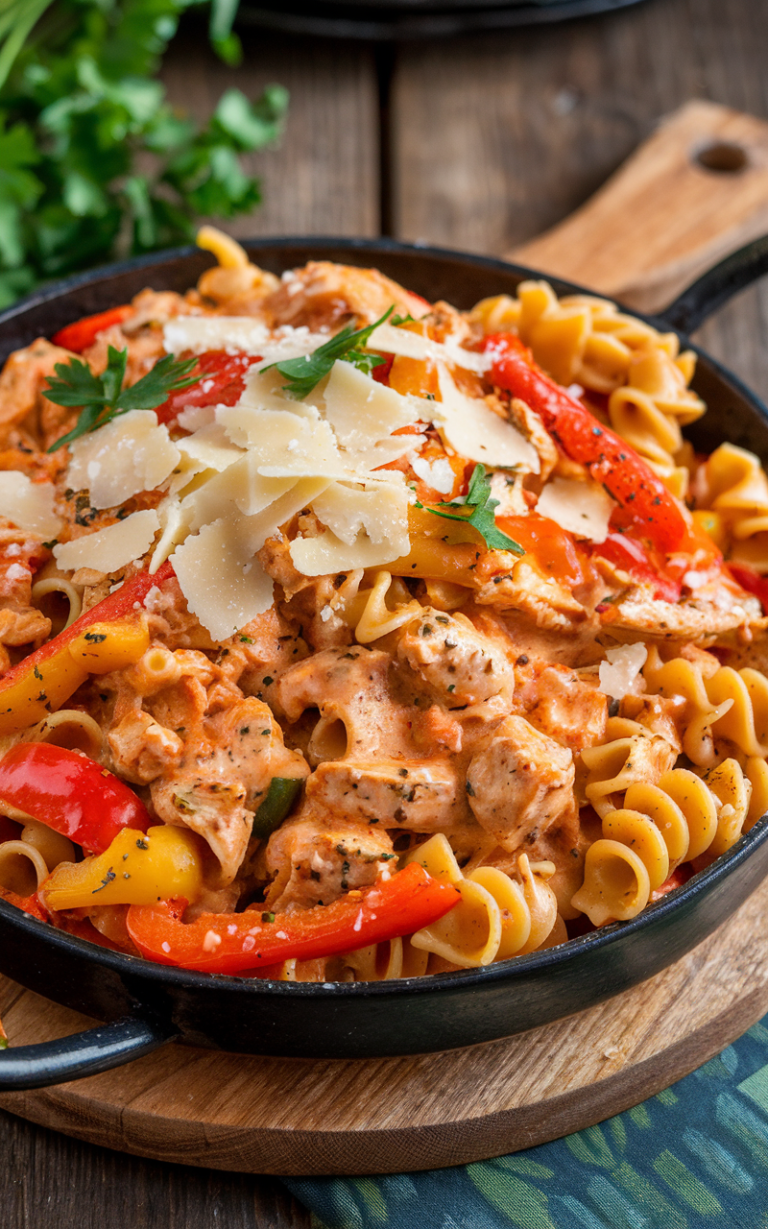10 Natural Supplements for Anxiety and Panic Attacks
Ever felt like you lost control over your life and falling into the abyss? Rapid breathing, sweating and dizziness follow along. If so, you have been suffering from anxiety and panic attacks.
I’ve been there too.
By now I know of how overwhelming and scary these situations may be. However, as many people with these disorders until recently I was are unaware that panic attacks and anxiety symptoms can be controlled and treated.
Anxiety and panic attacks – you are not alone in this fight
Anxiety and panic attacks symptoms are not a rare thing. According to the Anxiety and Depression Association of America, ”anxiety disorders are the most common mental illness in the U.S., affecting 40 million adults in the United States age 18 and older, or 18.1% of the population every year”.
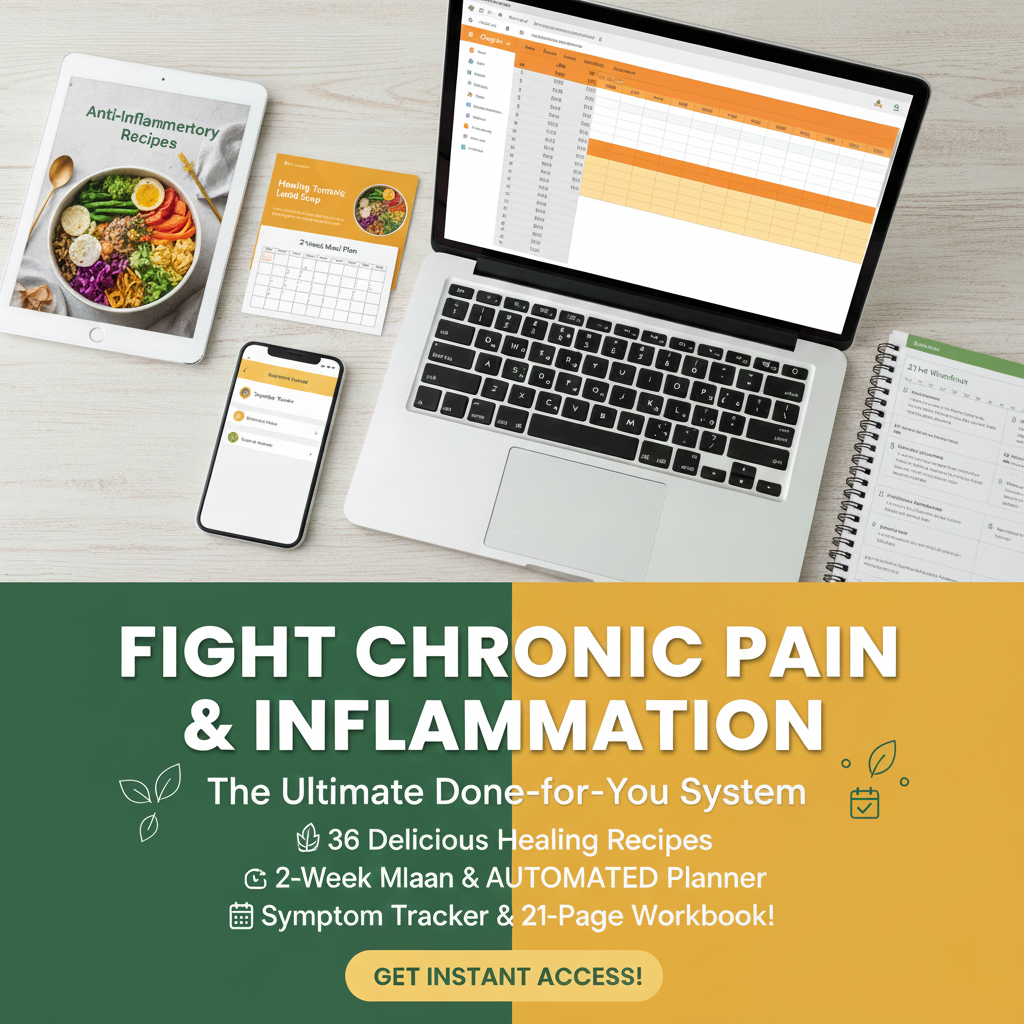
Whether you experience mild symptoms or have regular full-blown panic attacks, it’s so important to find a remedy for anxiety that works for you. Alongside prescribed medicine, that you might be getting from your doctor, it is often important to support your mental health with natural remedies.
Natural supplements and herbal remedies are there to ease anxiety symptoms. As well as helping with anxiety, many health remedies are known to have other positive benefits, for example, helping with insomnia.
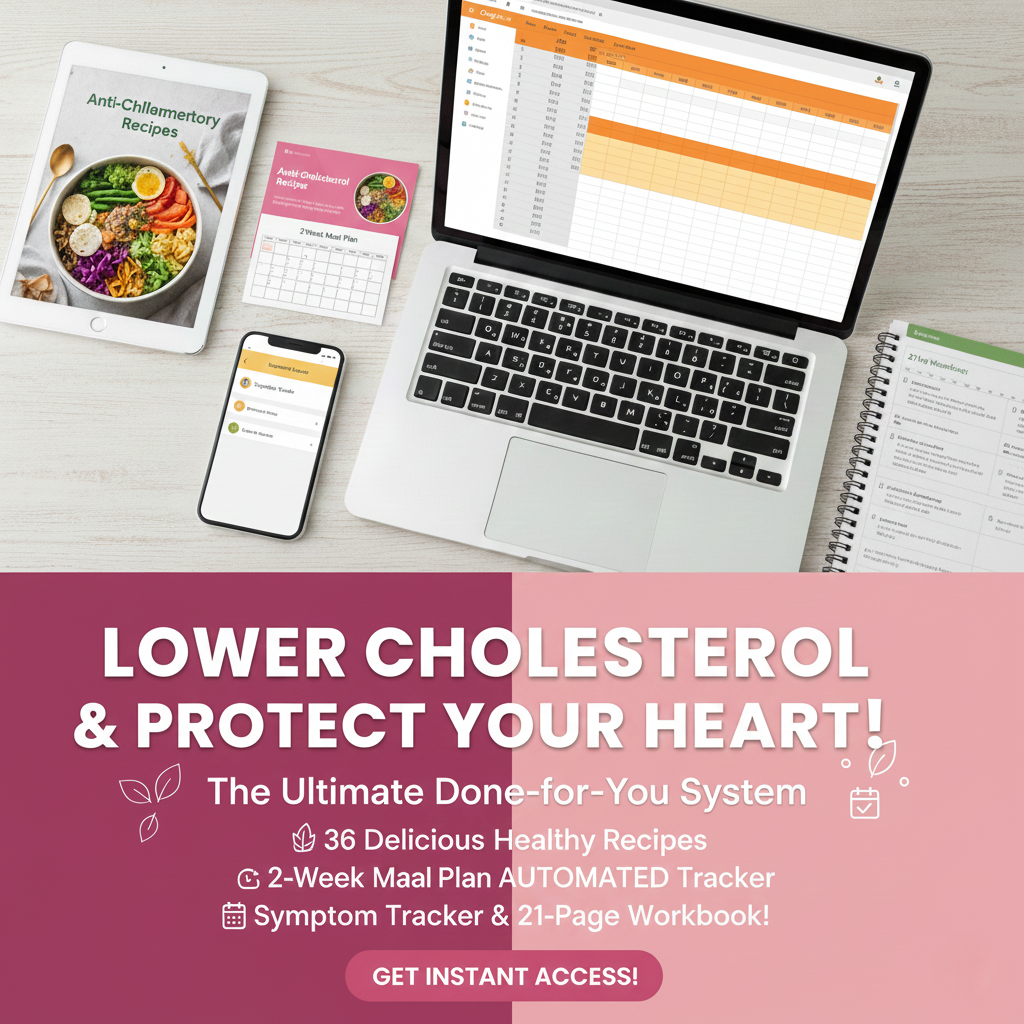
I’ve compiled a list of 10 effective natural supplements that help with anxiety and panic attack symptoms.
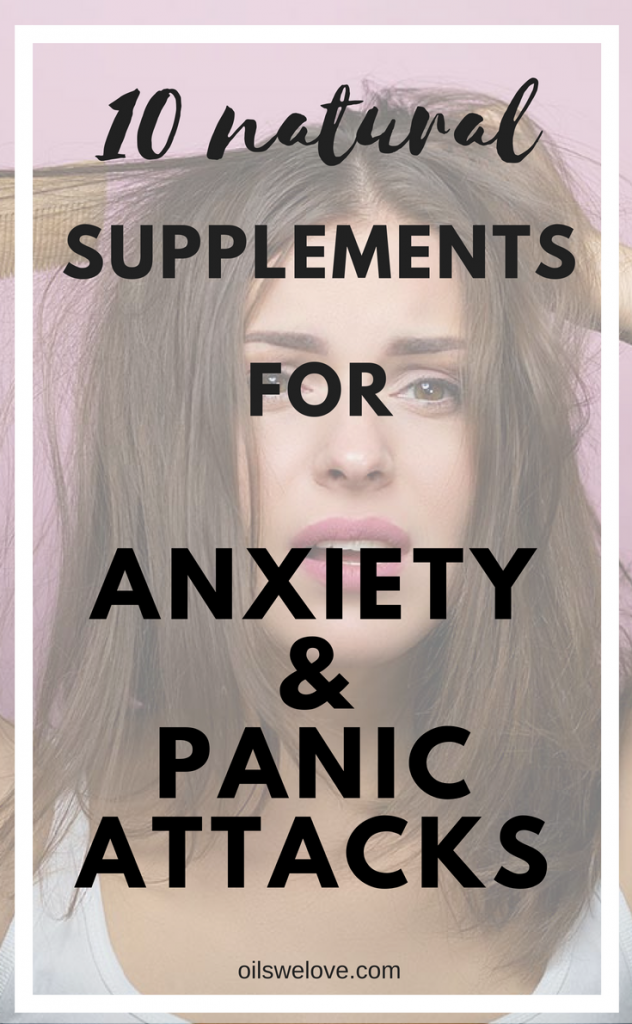
Effective natural supplements for anxiety and panic attacks
-
Kava Kava (Piper methysticum extract) for anxiety
Kava Kava is used as an anxiety remedy for centuries. Kava or kava kava or Piper methysticum is a herb grown in the Pacific Islands. It promotes relaxation, it calms down and helps with depression symptoms.
Several studies show, that kava is superior to placebo in curing generalized anxiety.
The consumption of kava root makes you more relaxed and calm, ont top of that, it promotes better and calmer sleep.
Kava Kava is available in different products, like tea, but today it’s most frequently consumed in pill or softgel form.
The dosage of Kava Kava for anxiety and panic attacks varies between 200 and 500 mg per day. For example, Kavana Supplements Kava Kava pillscontain 400 mg of kava in one serving.
-
L-theanine for anxiety
L–theanine is an amino acid found most commonly in tea leaves and in small amounts in Bay Bolete mushrooms. L-theanine is an amino acid.
L-theanine effectiveness for anxiety and panic attacks have been widely studied. L-theanine increases serotonin levels, a so-called „happiness hormone”. Apart from that, L-theanine increases GABA (Gamma-Amino-Butyric Acid) Production. GABA is our main inhibitory neurotransmitter and a key regulator of both anxiety and addiction. It helps us stay in that calm
The dosage of L-theanine for anxiety is around 200 mg per day. This is usually taken as a once-daily tablet. You can try out Premium L-theanine 200 mg capsules.
-
Valerian Root for panic attacks
Valerian root is a well known home remedy for light versions of insomnia, because it works as a natural sleep aid for insomnia which can often be caused by anxiety. Valerian root works is a natural sedative and helps to lower blood pressure and improve the functioning of the cardiovascular system. .
Numerous studies have found that valerian root treats anxiety symptoms such as OCD.
If you are distracted by the smell of valerian root, you can also find it in an encapsulated form. The dosage of valerian root for anxiety is as follows: take 300 to 600 mg of valerian root 30 minutes to two hours before bedtime.
Try out BeCalm Premium Stress & Anxiety Relief Supplement with valerian root.
-
Omega-3 for anxiety symptoms
It is well known that fish oil (main source of Omega-3 amino acid) is good for the heart, and perhaps they protect against depression. Add anxiety to the list.
Several pieces of research showed, that patients with clinical depression showed signs of improvement after taking Omega-3.
Experts generally recommend that you get your omega-3s from food whenever possible. Oily, cold-water fishes like salmon are the best sources of the fatty acids.
However, none of us is not consuming so much fish on a daily basis, that it is enough to restore our Omega-3 balance. That is why taking Omega-3 supplements is so important.
-
Rhodiola Rosea (R.rosea), also known as “golden root”
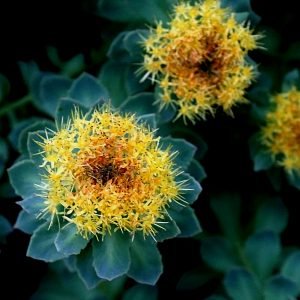 People have discovered that Rhodiola treats anxiety, fatigue, and depression over 400 years ago.
People have discovered that Rhodiola treats anxiety, fatigue, and depression over 400 years ago.
Rhodiola roots are rich in vitamins C and PP, tannins, useful organic acids, proteins, carbohydrates, unsaturated fats, macro- and microelements .
As an adaptogen herb, it can have a direct effect on your stress levels and your ability to control and manage stress. Rhodiola helps to relieve anxiety symptoms as well.
Rhodiola encourages calmness and relaxation as well as being a natural stress-reducing and anxiety remedy. You can also add a capsule with 600mg of Rhodiola to your daily supplements list.
![]()
-
GABA for anxiety and panic attacks
GABA is an amino acid that is believed to help anxiety. It is an essential micronutrient for the entire body.
Several studies [1] show that GABA supplements can help with anxiety symptoms. GABA works as a mild sedative to help falling asleep faster. Also it activates metabolic processes, saturates the brain with oxygen, improves blood circulation throughout the body;
Many GABA supplements include B6 – if not, make sure you take a separate B6 supplement to strengthen the effect on anxiety symptoms.
For example, NOW Foods produce a strong combination of GABA and vitamin B6 in one capsule.
-
Passionflower for anxiety symptoms
The beautiful velvet flower is used as a natural medicine for anxiety sufferers. Passionflower is used for sleep problems and anxiety disorder.
Studies about what Passionflower extract has on patients with these disorders showed, that 30 out of 41 patients showed felt positive effect: the patients became less irritable, their sleep improved.
Passionflower has calming effects on people restless and anxious. Most often it is sold in a form of teas, liquid extract, and tinctures. But those, who seek convenience, can also buy it in the form of a pill or capsule.
-
Chamomile tea or pills
Chamomile is a natural way to relieve menstrual cramps, ease stomach pain and calm down the nervous system.
Chamomile contains high levels of antioxidants that reduce inflammation in the body – and thus reduce anxiety.
In a 2010 study published in ClinicalTrials.gov, found that patients, consuming chamomile extract 500-1,500 mg daily for 8 weeks, showed improvements in their anxiety symptoms.
Having a sip on a cup of chamomile tea before bed to relax and set you up for a good night’s sleep is probably an anxiety remedy you’ve either done or heard of. If you’re not a fan of tea, it’s also available in pill form.
Check out these Chamomile pills from Nature`s Way.
-
Melatonin
Melatonin is a hormone that regulates the circadian rhythms of organisms – fluctuations in activity associated with the change of day and night. Therefore, it is called the sleep hormone or the hormone of the night.
This study found, that, besides the positive effect on depressive symptoms, melatonin may also be used to treat anxiety, and sleep.
Some countries require a prescription before disseminating melatonin. Those living in the US can buy melatonin over the counter or online.
You can find it in the form of capsules or chewable gummies.
-
Lemon Balm for anxiety and sleep problems
Lemon Balm also known as Melissa officinalis has a delicate refreshing taste and lemon scent. This natural anxiety remedy has been used since at least the Middle Ages as an antispasmodic, analgesic, calming remedy.
Lemon balm may also be helpful in treating digestive issues (esp. painful bloating due to the accumulation of excess gas in the intestines) and headaches (even migraines).
Known for its calming and soothing properties, lemon balm helps with sleep disturbances, and general nervous excitement.
As always, stay safe and check with your healthcare provider before starting to take any herbs and supplements. If a home remedy worsens symptoms, stop using it, and contact your doctor or a dermatologist.
Resources:
-
Lydiard RB. The role of GABA in anxiety disorders. J Clin Psychiatry. 2003;64 Suppl 3:21-7. PMID: 12662130.
Disclaimer: The contents of this website are for informational purposes only and do not constitute medical advice; the content is not intended to be a substitute for professional medical advice, diagnosis, or treatment. Always seek the advice of a physician or other qualified health provider with any questions you may have regarding a medical condition.

